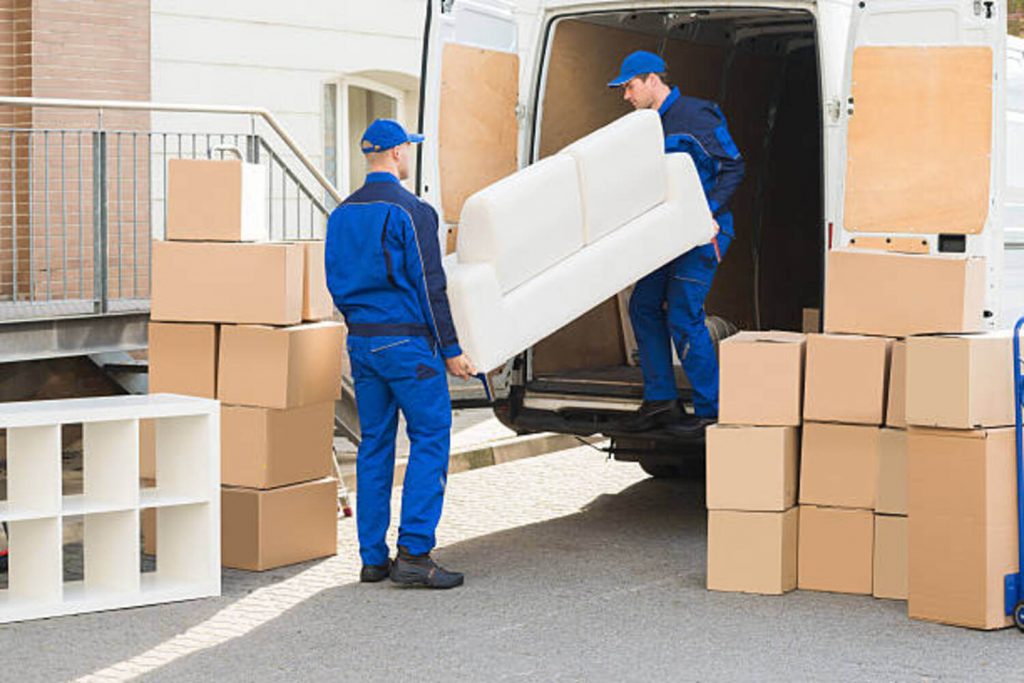For whatever reason you’re moving homes, there will always be something you wouldn’t know, especially if you’re a first-timer and unfamiliar with the process. But that’s totally fine! Everyone has something to ask.
That’s exactly the point of this article – to answer the most frequently asked questions regarding moving.
Do You Need to Tip Your Movers?
To cut things short, you don’t have to tip your movers. But after a long day at work, making the relocation stress-free for you, it’s only right to show them a little appreciation. After all, they might’ve done everything, from packing your items in your old home to unloading them in your new house. It’ll surely brighten their day. Doesn’t that warm the heart?
However, there’s a common question following this. How much should you tip movers? A general rule of thumb usually suggests tipping them about 10% of the total moving cost or between 4 and 5 dollars an hour per person. Another way to determine how much to give is by considering factors that happened during transportation.
Here are some examples:
- Was the weather good during transit? How was the road?
- Did they arrive earlier or later than the scheduled time?
- Was customer service great? Were they friendly?
- Are there any damaged items?
- Were they taking too long of a break and seemed like they were slacking off?
- Did they finish the job faster than intended?
- How did the move feel overall?
Take all these into account when deciding on whether you’ll give out tips or not and how much it will be.
When is the Best Time to Move?
There really is no definite answer as it all comes down to your preferences, budget, and needs. However, when people say “the best time,” it usually means when the prices are lowest. If that’s what you want to know, mid-September up to April is ideal, when demands are less, and moving companies have more flexible time. But if you’re relocating with children, summer is the best, so you don’t have to disturb their school. In addition, home prices typically increase during this period, which may offset the expensive costs of moving if you decide to sell your old house.

How Much Does Moving Cost?
It’s difficult to come up with an estimate of relocation expenses. That’s because factors, such as the size of your move, distance, and time of relocation may affect it. But the best way to determine your potential spending is to decide first whether you’re moving by yourself or with movers.
If you choose to DIY your move, calculating the costs will be more complicated. You’ll have to think about the price for packing materials, truck and equipment rentals, gas prices, and other miscellaneous expenses. However, suppose you’re hiring a moving company. In that case, you can just ask them for a free quote, and they will do everything needed to get an assessment of the expected charges. Either way, moving is expensive, so you’ll need a decent budget.
Can I Save Money When Relocating?
Yes, absolutely! Follow these simple tips to cut back on moving spending:
- Organize your items, sell anything you don’t need or want, and donate what’s left behind.
- Recycle boxes in your home, from friends and neighbors, or buy them cheap in bookstores, grocery stores, Craigslist, and Facebook Marketplace. You can also reuse packing materials, such as paper, towels, and clean socks.
- Pack items yourself, but make sure to secure them well.
- When hiring movers, relocate during the off-season.
- Hire the right moving company.
There are many ways to save some cash when relocating. You just need to be creative.
How Do I Pack Properly?
Before everything else, gather enough or more packing materials. It’s better to have some excess than to buy additional supplies in the middle of packing.
After that, you should:
- Pack the same items together like clothes, utensils and cutlery, stemware and glasses, and plates and bowls, putting an adequate amount of bubble wrap or any kind of padding.
- Boxes shouldn’t be so heavy that it’s hard to lift.
- Label the boxes according to their contents.
- Make a separate essentials box to put everything you might need during transit.
- Use the correct size for boxes.
- If you’re moving specialty items, it’s best to let professional movers handle them.
Packing is a long and tedious job. But doing it yourself can save you money and keep things organized. Nevertheless, hiring movers to do it for you is still always a wise choice.
What Happens if the Items are Damaged?
Suppose you hired a mover. In the highly unlikely case that your items get damaged during the move, they’re entirely liable for it. The first thing you have to do is remain calm. Then, file a claim within nine months of your move. But the sooner, the better. Don’t forget to provide evidence of your claim to speed up the process. After that, wait for reimbursement offers. However, there are some instances when a moving company denies it. If that happens, take the case further. You can file a claim in a small claims court, where the judge will decide whether you’re getting compensation. This is why it’s crucial to make a home inventory list, get extra moving insurance, and verify the moving company you’re working with.

Final Thoughts
It’s never a bad idea to inquire and ask for help if you don’t know something. Hopefully, after reading this article, all your questions about moving homes have been answered, so your relocation can become smoother.

